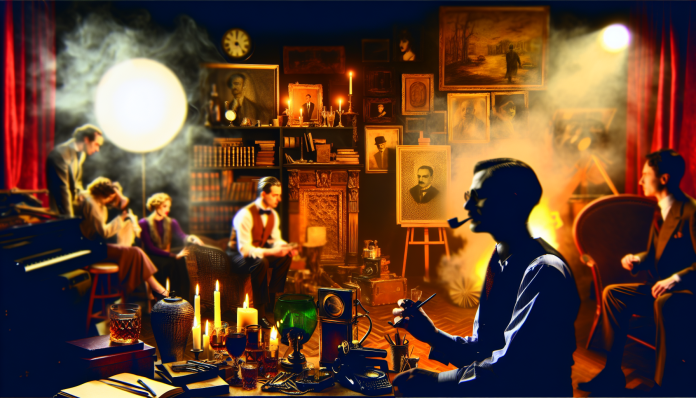Introduction
Johnny Cash, the iconic “Man in Black” and one of country music’s greatest legends, is celebrated for his raw, emotive storytelling and deep, baritone voice. However, beneath the award-winning performances and the rebellious image lay a secret that would ignite headlines and challenge the mores of his era. Cash’s passionate love letters, particularly those penned to his first love, Vivian Liberto, unveiled a tumultuous side of his life that mirrored a complex relationship filled with desire, guilt, and romance. Set against the backdrop of the 1950s and 60s—a time when societal norms strictly governed relationships and sexuality—these letters not only stirred a personal scandal but also offered a window into the evolving culture of love and fidelity.
The Scandal
The revelations concerning Johnny Cash began to surface in the early 1990s, particularly when his daughter, Rosanne Cash, uncovered a trove of more than 1,000 letters between her father and his then sweetheart, Vivian Liberto. Written predominantly from the road as he rose to fame, these letters are filled with fervent declarations of love, longing, and the struggles of infidelity as Cash was often on tour and increasingly tempted by the lifestyle that fame brought.
- Key Events:
- Cash and Liberto met at a roller-skating rink in 1951, marrying just a year later.
- While Cash’s career skyrocketed, his life spiraled into a cycle of addiction and infidelity.
- The letters reveal Cash’s deep-craving need for connection amidst his fame and turmoil, highlighting his internal conflicts between love and his rock star persona.
Quotes from the letters are striking, such as his passionate vows: “I can’t wait until I’m back in your arms again. You are my everything.” Yet, the tension is palpable as he grapples with the allure of fame and his love for Liberto. “It’s hard to think of anything else when the world keeps throwing itself at you… but I love you, and I miss you,” he wrote.
The letters were intensely private, yet once made public, they captured both fascination and outrage.
Moral and Cultural Analysis
-
Societal Reaction:
During the 1950s and 60s, societal expectations around marriage and fidelity were rigid. Affairs were often swept under the rug, and public figures were expected to maintain a flawless image. Cash’s infidelities and the emotive nature of his letters opened up debates about the authenticity of relationships in the public eye. -
Consequences:
The fallout from Cash’s affairs primarily affected his marriage to Liberto, leading to their divorce in 1966. While he maintained a close relationship with his daughters, the personal agony that stemmed from his choices reverberated throughout his life and career. - Modern Perspective:
If the love letters were unveiled today, the reaction would likely be different. Society has become more accepting of flawed human behaviors, particularly concerning the complexities of addiction, mental health, and infidelity. There’s also a stronger discourse surrounding the idea of vulnerability in relationships, making Cash’s letters resonate with contemporary audiences seeking authenticity in love and life.
In a modern context, Cash might be praised for his emotional transparency amid the pressures of fame, offering a counter-narrative to the often glamorized perception of rock star lifestyles. The conversation around his love letters shifts from scandal to a reflection of human experience and the challenges of fidelity in the spotlight.
In essence, Johnny Cash’s passionate love letters not only chronicled a tumultuous personal life but also offered deeper insight into the conflicts of love and fame—a timeless tale that continues to captivate.

